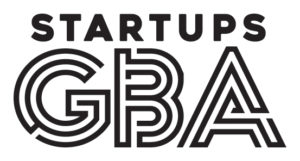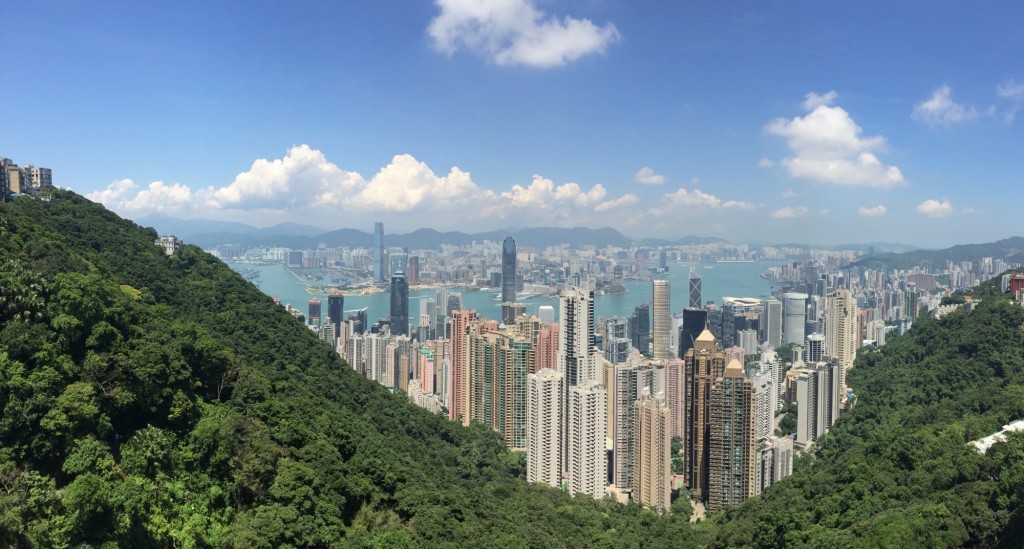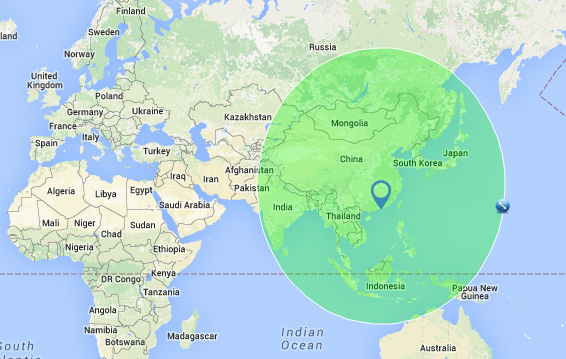With an average of eight unicorns born each year (companies worth over $1B) throughout each of the past 10 years, it’s no surprise that startups are becoming much more common as entrepreneurs strive to create the next Facebook, Uber or Xiaomi. This increased interest in entrepreneurship has sparked the creation of startup communities around the world, and Hong Kong might be next.
Throughout the past year and a half, I have become fully immersed in the vibrant startup community in Waterloo. With a population of only about 550,000, more than 1,850 startups have been founded in Waterloo in the past 5 years alone making it the most dense startup region after Silicon Valley. More than $650 million in investment has been raised by local companies including VidYard, Thalmic Labs, and Aeryon Labs, and we now have our own unicorn, Kik Messenger.
Drawing upon my experiences in the Waterloo startup ecosystem, I moved to Hong Kong with my company, Grobo, for two months and this is what I observed about its startup ecosystem:
1. Hong Kong Is The New World Center
Majority of Asia is within a 5 hour flight from Hong Kong
Once a British colony, Hong Kong has since become a financial hub that connects Asia and the Western World. With a large population of expats living in Hong Kong, this English speaking region provides companies with the ability to easily land and establish operations in Asia. In fact, half of the global population lives within only a few hours flight from Hong Kong, making it an ideal launch pad for Asian operations. This often under served population presents a market opportunity that is much larger than the contiguous US, which has traditionally served as the global target market, especially for Canadian companies.
The most obvious opportunities for startups in Hong Kong reside in the FinTech space, however the proximity of Hong Kong to Shenzhen, the hardware manufacturing capital of the world, makes it an ideal location for hardware companies. As hardware further decentralizes, Hong Kong still provides quick access to other Chinese cities as well as to Taiwan. If you can move past the insanely high cost of housing, the ease with which companies can operate in Hong Kong is impressive, and the energy in the city is simply infectious.
2. Community Building Is In Full Swing
One of the greatest competitive advantages that Waterloo maintains is its small geographic area and small population size, which has fostered a tight-knit collaborative culture. This culture is what makes Waterloo unique, because it allows the universities, incubators, innovation centers, local government, and startups to work closely together in building this ecosystem. Each stakeholder understands the challenges that others are facing and they can work to address these issues through regulatory changes, specific allocation of funding, and tailored mentorship.
Hong Kong currently has the opportunity to mimic this culture, although it will be slightly more challenging due to the larger population size and the resulting less intimate environment. As every local organization fine tunes their value proposition, it is clear that community building has begun. Government programs such as Science Park and CyberPort already provide critical first grants and free office space to pre-seed companies in a similar manner to Velocity and Communitech in Waterloo. Accelerators and incubators can walk companies through their early stages, while key groups including the Hong Kong Kairos Society and StartupsHK can build the necessary mentorship and support networks between entrepreneurs. Although certain rifts already exist between stakeholders, the tension should ease with time. Furthermore, as we have learned in Waterloo, the roles of each stakeholder will be ever-evolving to match the needs of the startups, but a strong foundation is currently in the works.
An amazing networking dinner hosted by the Hong Kong Kairos Society
3. Talent Is A Potential Roadblock
Although there are many benefits to Hong Kong, talent will likely be the biggest roadblock to the creation of a burgeoning startup community. The University of Waterloo both fosters entrepreneurs and provides skilled technical talent to local startups, which has proven critical to this ecosystem. Velocity, the University’s incubator program, is currently home to over 60 companies. Although the talent that is present in Hong Kong is quite strong, it will likely prove difficult for the University of Hong Kong (HKU) and the Hong Kong University of Science and Technology (HKUST) to produce enough talent to feed the increase in startups. Strong software and hardware talent, for example, is already seen as being in short supply.
Connecting young talent with both experienced talent and a strong network of mentors is the other half of the equation. The experience that these individuals provide helps companies move faster while making fewer mistakes, which is crucial for cash strapped startups. In Waterloo, for example, BlackBerry is largely responsible for the current network of mentors. At its prime, BlackBerry was recruiting many extremely talented professionals from around the world, however due to recent downsizing, many of those individuals are now mentoring startups, and some have even created their own.
4. Funding Is Available (But Must Be Unlocked)
Luxury cars are everywhere in Hong Kong!
It goes without saying that adequate funding is a requirement for launching a startup. Government grants provide critical injections of funding at the earliest stages, which allow companies to develop their technology, to pinpoint the problem they are solving, and to make mistakes early on. The Canadian government currently does a great job of providing support and funding to early stage ventures (~$60–80K CAD) through various grants and government programs.
The Hong Kong government has also done a good job of providing this funding to companies early on. When combined with their extremely favourable tax laws, starting a company in Hong Kong is attractive from a financial perspective, with the exception of high real estate costs. Where Hong Kong has an advantage is in the seed funding stage, which is often filled by Angel Investors. With a strong network of high net worth expats and locals, including a high number of family offices, there is money available for startups. The catch, however, is that this money is often destined towards more traditional investments such as real estate, and this current generation of entrepreneurs will need to convince the investors to begin investing in startups. If these entrepreneurs are successful, Hong Kong’s ability to fund startups will be the envy of many, including Canada, where seed stage funding is currently lacking.
5. Fast Paced Culture
The speed with which life moves in Asia is simply astounding. While I was there, working 14–16 hour days was the norm, with a quick recharging hike or exploration each weekend. The energy throughout the city is palpable and the progress that every other company is making is deeply motivating. The city is alive and energized in a way that we rarely experience in Canada, and in a way, that should prove motivating to all startups in Hong Kong. If companies are able to feed off of this fast paced culture to pivot and move quickly, they will quickly become high growth companies.
Conclusion
Overall, Hong Kong has the potential to create a very strong startup community. Its geographic location, demographics, and governmental support are all aligned to make this happen. If the Universities can adapt towards filling the increased talent requirements, Hong Kong will begin to experience the exponential startup creation trends that are now being observed in Waterloo. Lastly, all organizations targeted at supporting startups will need to keep a watchful eye on how the ecosystem evolves in order to ensure that companies have all the support required to launch and become the next unicorn.
Bonus: Hong Kong Is Beautiful
Man Cheung Po Infinity Pool
It’s easy to understand why people move to Hong Kong and never leave. The energy of the city, the amazing food, and the diversity of people you meet are all huge draws. The beauty of the city itself, however, might just be the biggest draw. The city, with its amazing skyline, is actually built around a tree-covered mountain known as The Peak, and with Hong Kong’s amazing public transit system, you are always close to beautiful hikes and pristine beaches. I highly recommend hiking Dragon’s Back and visiting the Man Cheung Po Infinity Pool (Tip: Hike it in the rain so it’s all yours to enjoy!) the next time you visit Hong Kong.
Big Wave Bay at the end of the Dragon’s Back hike
Read original post on Medium.






